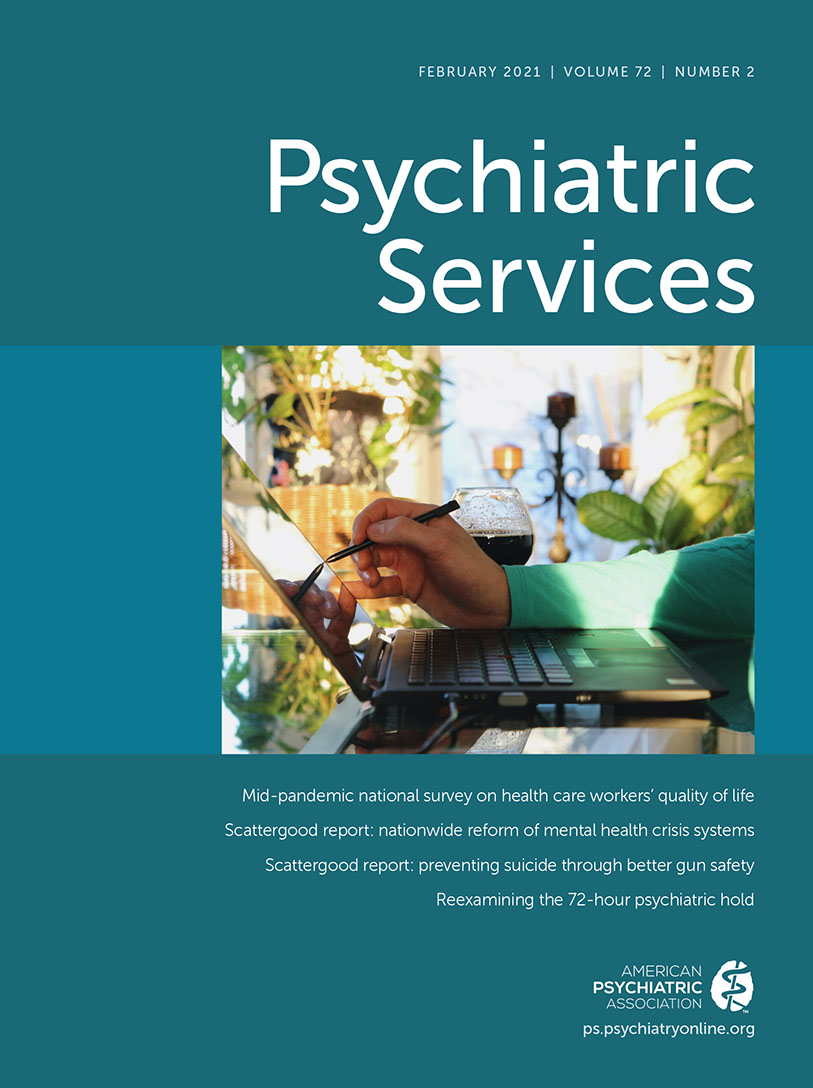COVID-19 Vaccination Strategies in Public Psychiatry
TO THE EDITOR: The perspectives shared by Pinals et al. in the October 2020 issue (1) point out that much will be learned in the months to come, and I suggest that public psychiatry direct a portion of that learning toward vaccination strategies.
Patients with severe mental illness are at risk for increased morbidity and mortality resulting from COVID-19 (2) and are at higher risk of not being vaccinated (3). In several months, the U.S. health care system will implement a massive COVID-19 vaccination effort, the logistical details of which are not yet clearly known. In its “Framework for Equitable Allocation of COVID-19 Vaccine” (4), the National Academies identify patients with disabilities due to mental illness as a priority population for COVID-19 vaccination. They are at higher risk of contracting the virus due to social determinants of health as well as to exposure to congregate settings, such as homeless shelters, group homes, and correctional institutions.
The public mental health system is the major health care contact for many patients with severe mental illness and should prepare itself to take a role in supporting the COVID-19 vaccination effort. It can do this by addressing known logistical challenges to vaccination for patients with severe mental illness, including communication barriers between institutions and care delivery systems. These barriers may exist between the mental health system and primary care, between outpatient and inpatient settings, or between pharmacy and clinical services.
This year’s influenza season is our only opportunity to practice mass vaccination under pandemic conditions before the COVID-19 vaccine is distributed. In New Hampshire’s state psychiatric hospital, we undertook an ambitious project to increase vaccine uptake. Measures included simplifying paperwork, scheduling unit vaccine clinics, assigning “flu ambassadors,” and electronically sending vaccine records to primary care and mental health outpatient clinics. There is reason to believe that similar interventions in community mental health centers can also increase vaccination rates (3).
Psychiatric hospitals and community mental health centers are urged to systematically promote influenza vaccinations this season to prepare for the moment when they are called upon to connect clients to vaccines and help end this pandemic.
1 : The behavioral health system and its response to COVID-19: a snapshot perspective. Psychiatr Serv 2020; 71:1070–1074Link, Google Scholar
2 : Association of a prior psychiatric diagnosis with mortality among hospitalized patients with coronavirus disease 2019 (COVID-19) infection. JAMA Netw Open 2020; 3:e2023282. doi: 10.1001/jamanetworkopen.2020.23282Crossref, Medline, Google Scholar
3 : Adult vaccination rates in the mentally ill population: an outpatient improvement project. J Am Psychiatr Nurses Assoc 2020; 26:172–180. doi: 10.1177/1078390319831763Crossref, Medline, Google Scholar
4 Gayle H, Foege W, Brown L (eds): Framework for Equitable Allocation of COVID-19 Vaccine. Consensus Study Report. Washington, DC, National Academies of Science, Engineering, and Medicine, 2020. https://www.nap.edu/catalog/25917/framework-for-equitable-allocation-of-covid-19-vaccineCrossref, Google Scholar



